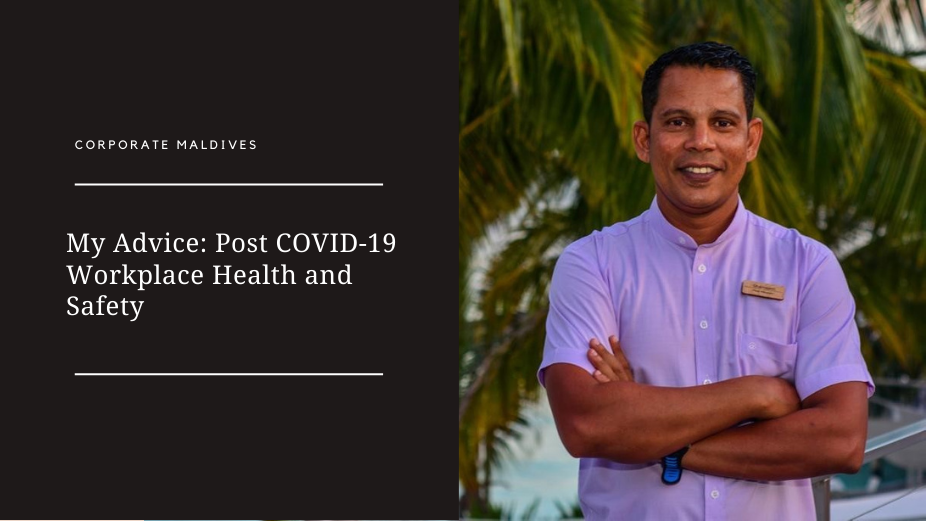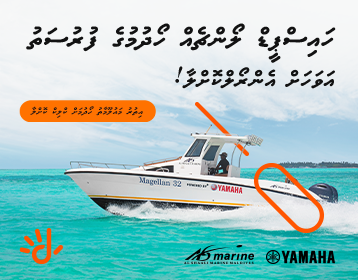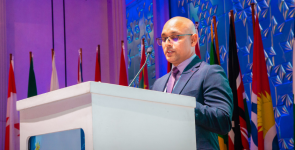Every day we wake up and go to work, fully intending to return home happy and healthy. While many resorts aim to protect employees and keep their health a top priority, sadly we hear the news increasing of COVID-19 cases in the resorts. The arrival of COVID-19 has thrown a wrench in many of our standard procedures, and tweaks are required to continue to keep employee health at the forefront of our business ethics.
Whether your business takes place in a corner shop or a public storefront, or you employ caretakers for your child and home care aides who go into homes for a living, it is paramount that workers have the tools and support they need to feel safe and know that their employers have their best interests at heart. Over the past few days, we have heard controversies about negligence, while it may take some time and planning, you can secure your workplace by following recommended guidelines and encouraging preventative health.
Follow HPA Guidelines
The Health Protection Agency (HPA) has laid out many guidelines for employers in this COVID-19 world. While these have been laid out as a reaction to the pandemic, these are processes that your business should follow even after the virus has come and gone to ensure that your employees are in the safest environment possible. One of the most important aspects is to require employees to report to management if they feel sick, and once confirmed, they should be sent home until they feel better. You should distance this individual from the rest of the workers while necessary, provide them with protective equipment, and then provide safe transportation to the nearest healthcare facility.
You should also have your health & safety staff take a more serious look at their disinfecting procedures. All common areas, including break rooms, the kitchen, and desks should be cleaned throughout the day and after-hours to ensure the cleanest space possible, using disinfectants that are the most effective at killing germs.
One of the cornerstones of coronavirus prevention is the constant encouragement to wash hands after using the restroom and any time that your hands are visibly dirty. As an employer, make sure that you supply many soap dispensers in bathrooms and hand sanitizing stations around all outlets and back of the house and keep them full. This step alone can be instrumental in keeping sickness at bay.
Social Distancing
Many people call this post-COVID-19 world ‘the new normal’ because we are learning that social distancing and avoiding germs can help us to avoid sickness in general. Social distancing means keeping a safe distance of six feet from others, so even if an employee does cough or sneeze, they are not letting their germs latch onto the person right next to them. This is why you should enforce some type of social distancing requirements at your business and keep them even after the coronavirus passes.
During this new normal, you may have to consider your scheduling practices and the number of people you have working at one time. If you work in the back of the house with machines and employees on top of each other, then you may have to consider adapting the schedule to have different shifts throughout the day. Doing so would limit contact, limit the potential for sickness, and it could promote better productivity as employees can feel less crowded and more focused.
Many outlets have had to close their physical office and resort to telework during the height of the coronavirus, and as those companies continue to thrive after the transition, it shows that remote work may be the norm going forward. With a telework force, you can give employees peace of mind about social distancing, and it can even save your company some money as you cut down on utility costs – funds that you can use for more safety initiatives around the resort.
Preventive Health
If COVID-19 teaches us anything, it is that it is essential to avoid getting sick in the first place with preventative health tactics. Cleaning counters and keeping a distance is one thing, but there are other hazards around the island that must be considered on a daily basis.
For instance, many workers spend too much time staring at their computer monitors. Doing so for too long can result in strained vision, which could lead to headaches and blurred vision. To avoid the risks, encourage employees to do physical activities instead, which means taking a break every 20 minutes to look at an object at least 20 feet away for at least 20 seconds. This gives your eyes an opportunity to relax and start fresh when you resume your task.
This is just one precaution that you can bring up at your monthly safety meetings. These are gatherings where you can discuss new protocols and tips for staying safe at work. You can talk about common threats like spills, trips, and falls and how to keep a clean work area. You can also have one-on-one meetings where you can talk to those close to retirement and inform them of expectations as they soon take advantage of Medicare, which provides cover for vision health as well as general wellness, and what they might want to get checked out sooner. If someone comes to you mentioning that they have a condition like diabetes, you can recommend preventive measures.
It is also worth mentioning the importance of taking breaks. Enforcing a break policy is important because it gives your employees a chance to step away from their work and refresh their minds. The last thing you need is a workforce that is overly stressed because stress can lead to poor productivity, and more importantly, health issues like high blood pressure and heart issues. Encourage two breaks plus lunch during an eight-hour day, and you will have safer and more productive employees.
If there is any bright side about the arrival of COVID-19, it is that we are now taking a more extensive look at employee health and safety. Implement these strategies now, and your employees will stick with you for life.
About the author: Shameem Mohamed Ismail is the Resident Manager of Kuramathi Maldives.



















